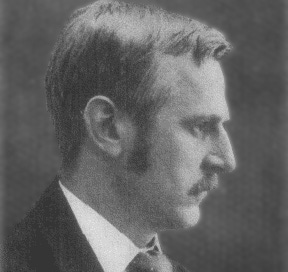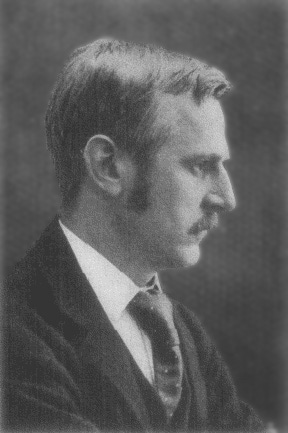Graham Wallas (1858-1932) is a member of the Fabian Society active in the UK.
Despite only having a maximum of five thousand members, Fabians are an influential group of the progressive era, working to defend the interests of the workers from 1880 to 1950. The Fabians first influenced the university and the liberal parties, and then the conservatives. They then allied with the socialists of the Labor Party when this party became able to win elections. Their goal was to improve the worker’s condition by an evolutionary process, rather than betting on a proletarian revolution.
Wallas left the Fabians in 1904 following their alliance with the Liberals. He will continue as "progressive". He published human nature in politics in 1907.
Of the existence of political parties
Wallas explains that an electoral list must include dozens of people. These people are generally unknown to those who will vote. The existence of political parties makes it possible to simplify the exercise of the vote.
In doing so, the parties create shackles for these voters and for elected officials.
Aside from the theoretical problem of collective decision-making that Condorcet describes under Louis XVI and Kenneth Arrow generalized in 1950, which explains how a public choice puts the median voter in a dictator position, this is a practical problem: Voters have neither the time nor the inclination of knowing so many people who will make important decisions concerning them.
Education and its limits: the bet of the Enlightenment and the socialists
In 1800, literacy rates in Europe were 34% in France and 54% in England, they increased to up to 80% before compulsory education was introduced and 98% after that.
Literacy was a battle between the Church and the State. At issue was institutional legitimacy and the loyalty of the masses. It was also a remarkable engine of social progress. Whereas, the UK, Netherlands, France and Germany arrived at literacy rates of more than 90%, literacy was still low in Italy or Portugal, and 10% to 20% outside Europe.
Wallas is therefore one of the first to note that popular circles, rather than becoming encyclopedists eager to discover and question themselves, use their literacy to read tabloids and like confirm their prejudices. Their free time is not spent towards study but for attending football matches that become so popular in the industrial cities of Manchester and Liverpool, that the best players become professional.
This is a lesson that can be learned from social facts observed in 1905 that was inaccessible to the authors of the Enlightenment in 1750 or to the Marxists and the Socialists in 1880.
Just as an educator must accept that children are not necessarily curious to learn to read or count, Wallas recommends that good incentives be set up for the population and the life of the city.
Borders, nationalism, colonization, genocide and eugenics
If the United Kingdom has appeared as a nation for a very long time, Wallas wonders about the question of nationalism, which claims that such tendency to unification as seen in Germany and Italy by 1871 is universal.
The question of the border is easy to solve on the basis of natural borders and language in England and Italy. According to him, those who preach the universality of nation-states are quick to dismiss the question of the Balkans where the nationalities vary from one village to another, or of most colonies, where European administrators govern arbitrary territories and non national tribal groups coexist.
A war in Europe with the confrontation of Germany and Russia seems inevitable to him in 1907.
Regarding colonization, he makes the same distinction as Thomas Piketty:
On the one hand, earlier colonizations in America and Australia where native populations vulnerable to diseases imported by Europeans have mostly been replaced by more resistant populations from Europe and Africa, and
On the other hand, colonies like India and Africa or the local population visibly resist diseases better, so that they will not be replaced.
Racist theories had free rein in Europe and the United States in the 19th century, according to which "European races" were more "vigorous". Perhaps the colonization of Algeria by France in 1830 followed a plan of "great replacement" of the Muslim population by French people.
In 1907, 80 years later, Wallas predicted that demographic "replacements" could no longer be done by infectious diseases.
They require according to him "systematic population massacres" (the word genocide was only known from 1943), or policies for the control of fertility rates. He is sincerely convinced of the value of the "English" race, but also recommends, given the exceptional success of certain metis populations, that a scientific study of races and the question of interbreeding would be examined to improve populations. He sees in Eugenics an important question for the future of Europe and a hope for humanity.
This hope of humanity turned into a nightmare: in the decades that followed, the question of eugenics was taken over by populists to justify xenophobia. Minorities were massacred to steal their belongings and to homogenize the nation-state’s populations.
While Wilson imposed in 1918 the nation-state as a panacea for peace, Wallas' uncertainties concerning the universality of nation-states were confirmed in the following century: the instability of the Prussia Poland Russia border between 1918 and 1945, the Balkans in 1991 and the partition issues for India-Pakistan in 47, Nigeria Biafra in 67.
Conclusion
Graham Wallas is a pragmatic socialist, who honestly pointed out in 1907 questions that were not visible in 1880 at the start of the progressive era, or in 1780 when the United States Constitution was written.
These questions are avoided by both liberal democrats and communists, who claim to be accountable to “the people”. Thus repeating a symbolic legitimating discourse that date back to the time of the Declaration of Independence or of Karl Marx.
These are the limits of education, questions of polarization according to partisan lines, natural borders and the rights of minorities to self-determination: the "universal" suffrage is only considered legitimate within a given border and for a given population.




